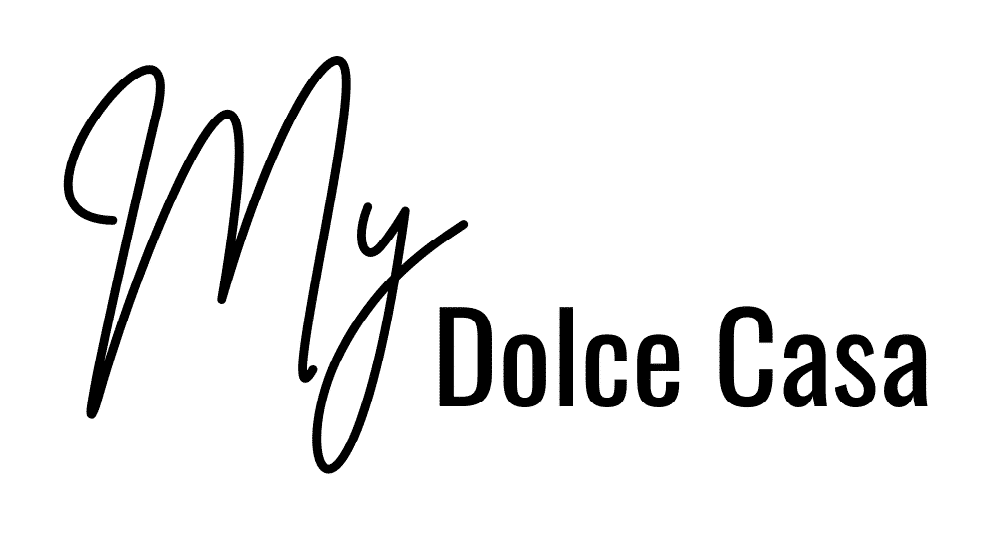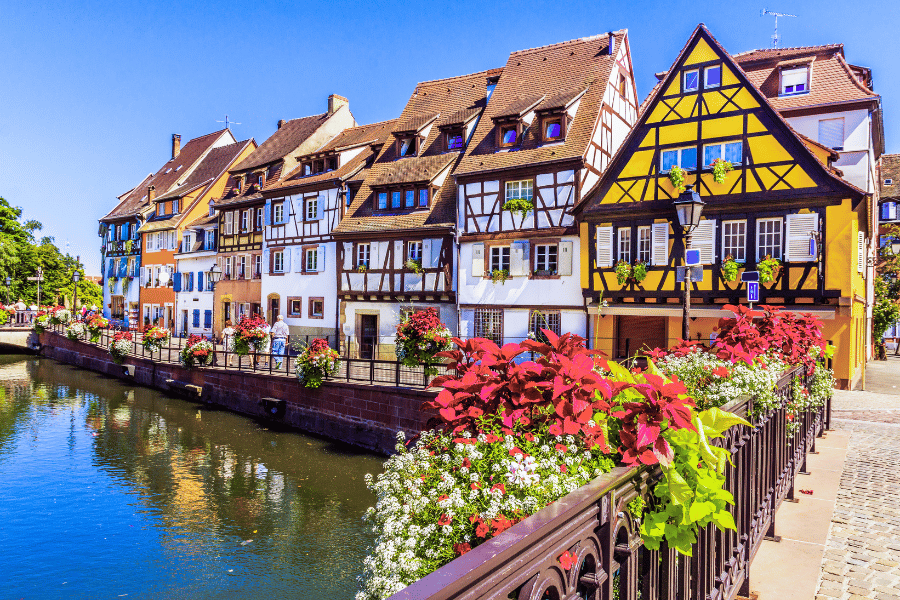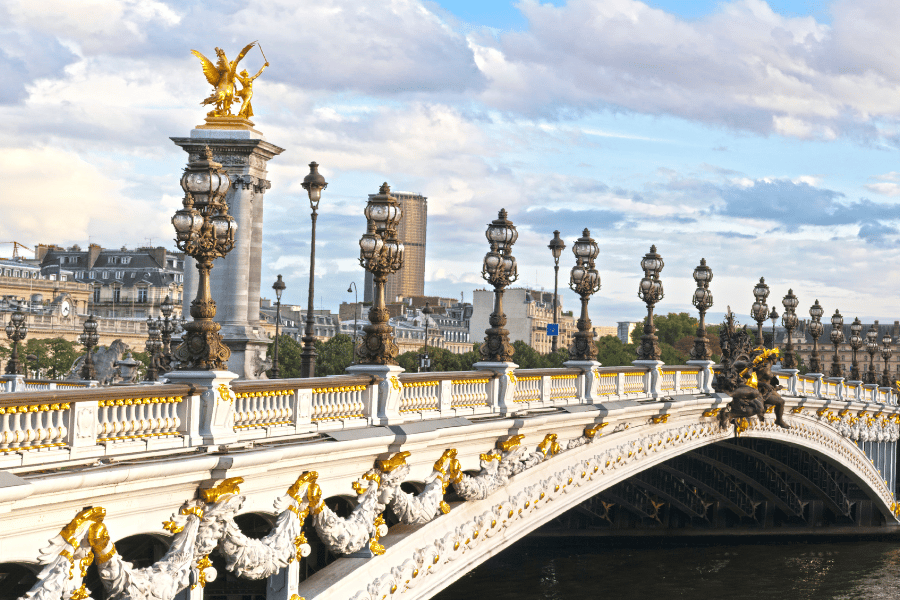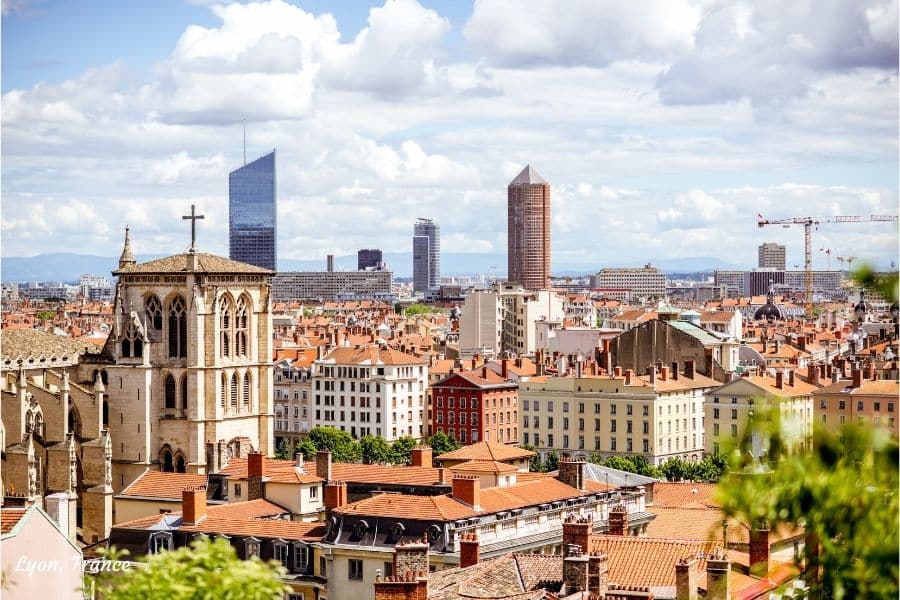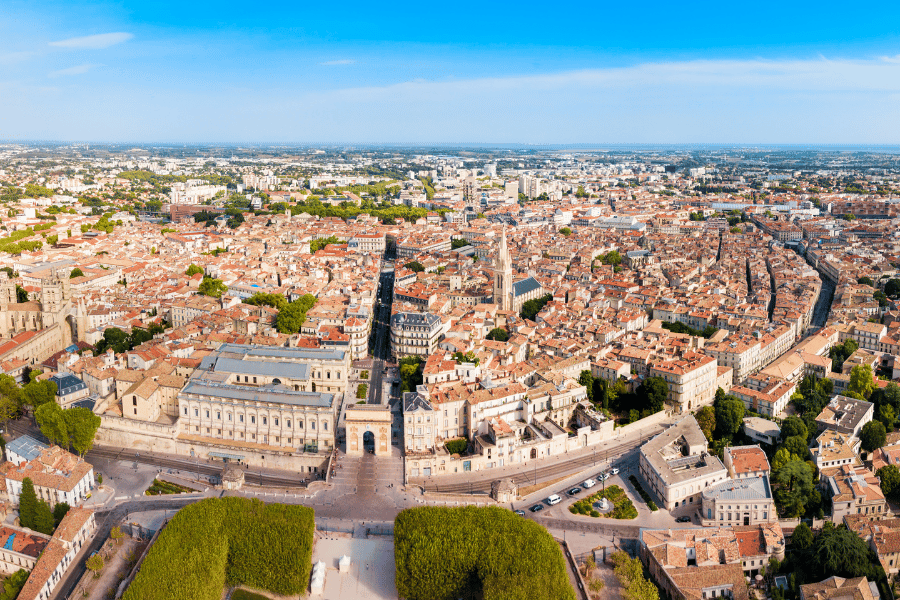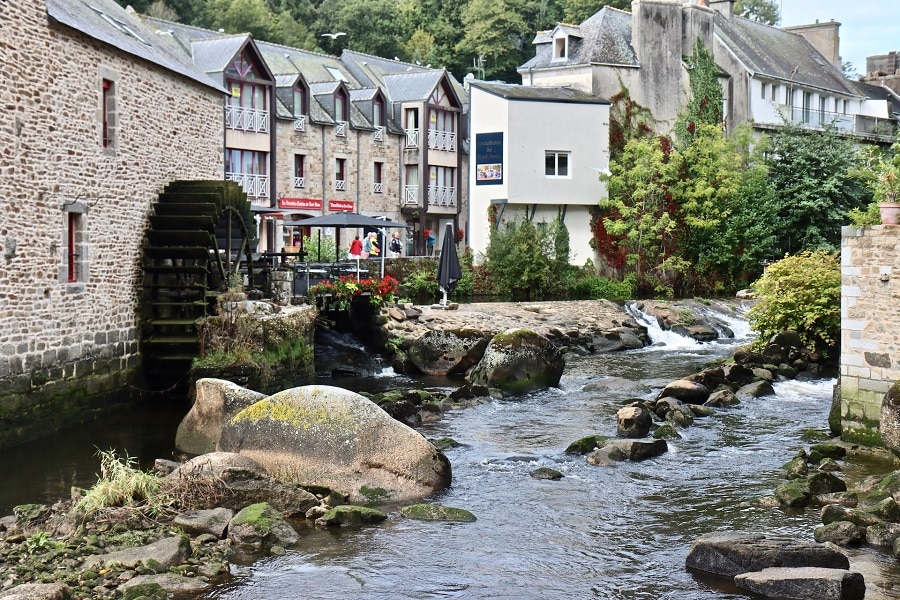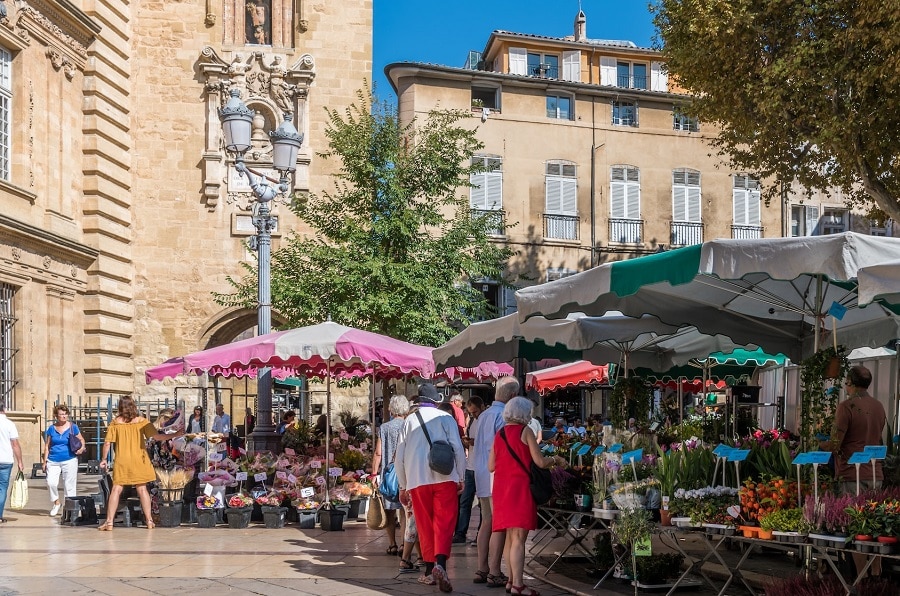France is one of the most popular European countries with expats seeking the perfect retirement. The climate, French food, and lifestyle are all big draws, especially to British, American, German, and Dutch retirees. With good advanced planning and research, retiring in France from USA or other countries is smooth sailing.
Retiring in France
To make your relocation to the land of fine wine and good cheese as easy as possible, good planning is essential. Once you have made the decision to retire in France, the first step if you need to begin researching where in France you would like to live – unless you already have a city, town or area in mind.
It is a good idea to contact your removal company early on to find out how quickly they can move your belongings and how long it will take for the boxes to arrive in France. If you are retiring to France from USA, it usually takes a number of weeks for your packed boxes to arrive at your new French home. Most people send their boxes a few weeks prior to their departure and opt to ‘live out of suitcases’ with relatives or friends.
Consideration must be given to what will happen when you arrive in France well before your belongings. If you do not have friends to stay with, a popular solution is to rent a gite in the area where you will be living. The benefit of renting a gite is that they are fully furnished and equipped for self-catering holidays. Many gite owners are happy to have a longer booking and you should be able to negotiate a better price for the rental.
Another important point to consider is whether you should be buying a car. It may well prove easier to hire a car for the first couple of weeks so that you don’t have to rush to buy a car. There will be plenty of points to consider in due time, for example whether you would like to buy an electric vehicle as charging points are being installed in many locations.
French retirement visa
People from non-EU countries such as the United States and UK will need to apply for a long stay visa, carte de séjour temporaire visiteur, before moving to France.
Once you have your France retirement visa and have been living in France for a couple of months, you will be able to apply for a residency permit, Carte de Sejour. This permit should be applied for long before your visa expires and needs to be renewed annually at a cost of €225. Once you have lived in France for five years, you will be able to apply for your permanent residency card.
To obtain your Carte de Sejour, you will need to fulfill certain criteria and prove that you have a regular income from your home country. You will also need proof that you have healthcare cover until you become eligible to access the French healthcare system.
Registering in the French health system
The French health system is said to be one of the best in the world and it is a legal requirement to have health insurance. As an expat, you will be able to access the public healthcare system by applying for the Carte Vitale. With this card you will be able to see doctors, dentists and medical specialists and get prescriptions at reduced prices. When you have a Carte Vitale you will be required to pay €25 for each medical appointment but will be reimbursed up to 70% by the French government which is paid into your French bank account. Many people with long term medical conditions such as diabetes have free healthcare.
Transfer of international pension to France
France has bi-lateral agreements with a number of countries, so that their citizens can still receive their pensions when they have retired in France. France has such agreements with both the United States and the UK, but other non-EU retirees hoping to move to France should check with the French Embassy in their home country.
Best places to retire in France
France is a large country with more than 2,000 miles of beautiful coastline, rolling countryside, mountains, colorful cities, and numerous pretty villages. The weather across the country varies, with the warmest and sunniest climate being enjoyed in the southeast in the Cote d’Azur and Provence regions.
There are a number of areas that are particularly popular with expats and these can be attractive as there are usually expat clubs and associations. Doing some research on your favorite areas you will find out what sports activities are available in the vicinity and other useful information like distance from airports and railway stations.
Another important consideration is how much it will cost to live in France. Living in Paris, the capital city is definitely more expensive, but costs vary from one area to the next and it can be easy to live comfortably and relatively cheaply. Many food prices are cheaper than in the United States – especially if you buy local French products rather than imported ones. Boulangeries are numerous and the traditional baguette costs around one dollar. Locally grown fruit and vegetables are well-priced, especially if you buy them in your local market.
A great way to discover if your chosen location in France really is going to suit you is to rent furnished accommodation in the area for a few months before committing yourself to a house purchase or rent long term.
1. Paris
- The monthly cost for a single person without rent: $1,100
- Population: 2.15 million in the city and 12 million in greater Paris
Paris, ‘the City of Light’ is one of the most beautiful cities in the world and not surprisingly, is a firm favorite with expat retirees. Living in the French capital is fun because there are amazing buildings, the Seine, art galleries, museums, theatres, concert halls and great restaurants. The downside is that Paris can be very expensive for renting an apartment in the best neighborhoods. Buying property is not an option for most people as prices are sky-high.
2. Lyon
- The monthly cost for a single person without rent: $950
- Population: 500,000
Set between the rivers Saône and Rhone stands Lyon, the city that is viewed by many as the culinary capital of France. It is the third largest city in France and as well as being a great place for foodies, Lyon is perfectly placed for those who want to spend time exploring Italy and Switzerland. For winter ski holidays, the Alps are just one hour away. Lyon also has a great cultural life with countless theatres and museums.
3. Montpellier
- The monthly cost for a single person without rent: $800
- Population: 473,000 in the metro area of Montpellier
This attractive city is located just five miles from France’s Mediterranean coast and despite it being close to some beautiful beaches, it is largely bypassed by tourists. In ancient times, it was one of the most important places in Europe and its university is one of the oldest in the world, and its medical school is definitely the oldest. Most of the key places in the city are within walking distance of each other and there is a rich cultural life. Living in Montpellier is about 17% cheaper than living in Paris and rents are on average 25% lower than in the capital.
4. Brittany Region
- The monthly cost for a single person without rent: $650
- Population: 3.35 million
The region of Brittany is known for its beautiful coastline with numerous fishing villages and small market towns inland. This area has long been a popular retirement area for Americans as prices are much lower here than the average prices in France. Life in Brittany is slower-paced and a stark contrast to the vibrancy of city life. Brittany is a rural area with many farming communities and is also known as a good hiking country. Brittany is well known for its great food too which includes crêpes, mushrooms, seafood, and good cider.
5. Aix-en-Provence
- The monthly cost for a single person without rent: $902
- Population: 142,000
Known for its stunning surrounding countryside and lovely weather, Aix-en-Provence is a really attractive city that is known for its numerous water fountains and tree-lined boulevards. Living in ‘Aix’ as it is fondly called is 12.5% cheaper than Paris and rent is nearly one-third lower. If you prefer to settle in one of the small villages in the beautiful Provence region, you will find lower prices, including in the lovely town of Luberon. Life in Aix is fun, with plenty of cultural events and summer music festivals.
Retiring in France pros and cons
While you are contemplating moving to France for your retirement, it is good to know the benefits and the downside of retiring to France.
The pros
- France is a large country with all types of countryside to explore.
- With more than 2,000 miles of coastline, France is guaranteed to have a beach you’ll love.
- France is world-renowned for its great wines and cheeses.
- Living in the rural areas of France offers a slower more relaxed way of life.
- It is great fun to explore traditional French markets and buy super fresh produce.
- The French healthcare system is one of the best in the world and much cheaper than in the United States.
- Away from the cities and the South of France, house prices are still surprisingly good, and if you are prepared to renovate a house, there are bargains.
- Eating out is affordable – especially if you opt for a smaller restaurant and the lunchtime set menu.
- The French TGV rail system is impressive, comfortable, fast and cheap, especially if you book your tickets in advance.
- You never have to worry if you are running a few minutes late for an appointment. In France it is acceptable to be up to 15 minutes late – just say Je suis à la bourre!
The cons
- It is important to be able to speak passable French, especially if you choose to live in a rural community.
- The French love bureaucracy. Red tape is a way of life in France and not all the rules are easy to understand.
- Opening a French bank account as an American can be tricky and involves plenty of form filling. There is no chance to leave the bank with a new bank account on the same day like in the States. If you are from the US, you will have to complete a W9 form at the bank, providing your U.S. taxpayer identification number (TIN). Your French bank will report your finances to the IRS.
- The French love to strike. France is often at the top of the list of European countries for the largest number of days lost to strikes, which averages 79 days per year.
- French driving standards are shocking, always drive defensively on French roads.
- Rural bus services can be challenging with infrequent buses.
- Smaller shops in rural areas are nearly always closed on Mondays, including hairdressers and beauticians.
- Shop opening times vary. Most supermarkets are open from 08:30 – 19:00 and on Saturdays from 09:00-12:00. Many smaller shops are closed for lunch between 12:00-14:00.
- It is hard to get many foreign foods in local supermarkets – especially Mexican and Indian foods. If you can find them, they are pricey.
Plenty of research about France will help you to find the most suitable place to live and enjoy your retirement to the fullest. Visit the country as much as you can before moving permanently, to get a taste for the real French life. You will be able to look forward to relaxing and enjoying an apéro in the evening sunshine, a cocktail, and snacks just before dinner with the toast Santé, your good health. Here’s to a great retirement in France!
